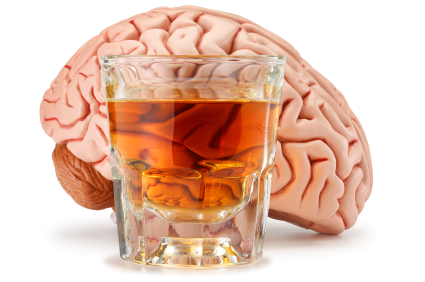Interventions
Vince Carolan works personally with all clients. He has no financial ties to any treatment center. He does not use subcontracted interventionists.
Interventions are processes that are used by families, friends, or businesses to get a loved one or co-worker to see that he/she needs help to deal with a life-threatening addiction or other destructive lifestyle. With expert assistance from a professional interventionist, a plan is designed to create a loving and compassionate atmosphere in which the person can hear the concerns of others and accept help that has already been arranged by the intervention “team” (the concerned people and the interventionist.) Whether the afflicted person is involved in:
- abuse of alcohol
- street drugs
- prescription/pain medications
- eating disorder
- pathological gambling
- self-mutilation
- or other self-defeating behavior
the intervention process follows a defined course, guided by the interventionist.

Usually it is one person in the afflicted person’s life who starts the intervention in motion by calling an interventionist. In the initial call to Vince Carolan’s office a brief description of the problem is discussed and a preliminary plan may be devised in order to help the caller to decide on the next steps to be taken. Strict confidentiality is observed. No further contact will be made with the caller unless it is requested. Some questions are asked regarding what family members or friends the caller wishes to be part of the intervention team. The interventionist will guide the caller to the next steps if she/he wishes to continue planning an intervention.
Why Choose an Intervention?
Intervention is needed to help persons who have addictive illness to accept help when they don’t want it and don’t even think they need help. Having addictive illness, when addicted to a substance(s) including prescribed pain killers and tranquilizers, stimulants, street drugs or alcohol will impair the addict’s ability to be introspective and to see that their drug or alcohol use is destroying their life and the lives of family, friends, co-workers, clients or patients. Eating disorders, pathological gambling and other compulsive disorders will cause a similar denial in the afflicted individual.
Important early decisions about interventions have to do with whom would be involved as a team member and whom would not be appropriate for such a role. This decision takes some consideration of the afflicted person’s relationship with the family member, friend or co-workers who wish to be part of the intervention education and process.
It is also important to discuss with the family the advisability of going forward with the process and not waiting for the afflicted one to “hit bottom”…. because often the “bottom” is too painful to contemplate. Death, critical injury, loss of job and family, loss of freedom (Jail) and fortune are all potential outcomes of delaying intervention.
Latest research indicates that addiction is a brain disease
It is believed that one section of the human brain (the limbic system) overpowers the pre-frontal cortex and in so doing overrides the person’s ability to exercise good judgement. So that once the pre-frontal cortex has been “taken over” by the limbic system it seems to the afflicted person that he/she must use the addictive substance to survive. It is no longer a matter of reason and judgement (which occurs in the pre-frontal cortex) but it seems to be a matter of life-and-death to use the substance. Thus, it can be seen that once the person’s judgement is so impaired, they will behave in ways that are incomprehensible to those around him/her. That is why the people around the addict feel that they want to:
- grab him/her and shake them
- and ask “can’t you see what you are doing to yourself?
- and “can’t you see what you’re doing to us?.
Mostly, the answer is no, they can’t.
And even if there are times when they can see the destruction, they will blame somebody else for what is happening. They won’t take responsibility for what they are saying or doing.
3 Major Styles of Intervention
There are three major styles of intervention. In over thirty years of working with thousands of addicted persons and their families, Vince Carolan has learned the importance of making appropriate assessments regarding which intervention style may offer the greatest probability of success given the history of the afflicted person and the family. Often the intervention approach that is actually used is a combination the most effective components of all three styles.
Looking at the three major intervention strategies, we see that in two of them the afflicted person is invited to participate in his/her intervention from the very beginning.
-
- Johnson Model: Probably the intervention style most used is the JOHNSON MODEL. In this style there is no invitation issued to the afflicted individual. First, a family member, friend or employer contacts the interventionist to discuss whether or not an intervention is needed. Based on the history of the afflicted person and other factors it may be tentatively agreed to take the next step which is for the caller to talk about others in family who may be interested in helping the afflicted person. Key to success of intervening is the interventionist’s ability to help the caller to identify potential team members from the names offered by the caller. This is based on the relationships that exist between the afflicted person and the family member or friend who are suggested as team members.
- ARISE: In the ARISE style, an invitation is issued to the person needing help by one of the “concerned others”. She/He is told that there are family members and friends who are alarmed about their self-destructive lifestyle and want to discuss recovery options at a meeting at the interventionist’s office or hotel conference room. The afflicted person is given a day and time that the session is to be held and is told that the meeting will be held whether on not he/she is going to attend. A powerful recovery message is a part of this invitation.
-
- Family Systems: In the FAMILY SYSTEMS format, the afflicted person is invited to attend sessions at the interventionist’s office or hotel conference room. At these sessions a family genogram is developed with input from all attending and the professional directing the sessions helps them to track family history thru several generations pointing out a possible dysfunctional family system which helps the afflicted person to see that they are not the only person with problems in the family. This format is designed to get all of the family members to accept some sort of help to deal with their issues.
Scheduling an Intervention: Next Steps
Although an intervention can be arranged within 24 hours, it is preferable to allot more time to plan and to train the team members. It is not uncommon for Vince Carolan spend an entire day with the friends and relatives on the day before the actual intervention. This day is dedicated to education of the team and to writing and rehearsing the letters that will be read to the afflicted person the next morning. This preparation day is usually done in the interventionist’s office or a hotel conference room. Before this day, the interventionist coordinates with the family to arrange a reservation at an appropriate treatment facility so that on the morning of the actual intervention, there is a plan in place to get the person to treatment directly from the intervention site.
Transportation to the treatment center (if inpatient treatment is indicated) is pre-arranged and the person must be accompanied by the interventionist, a family member, or a professional transport specialist retained by the family. If you are interested in scheduling an intervention or counseling session give us a call, or contact us today!

